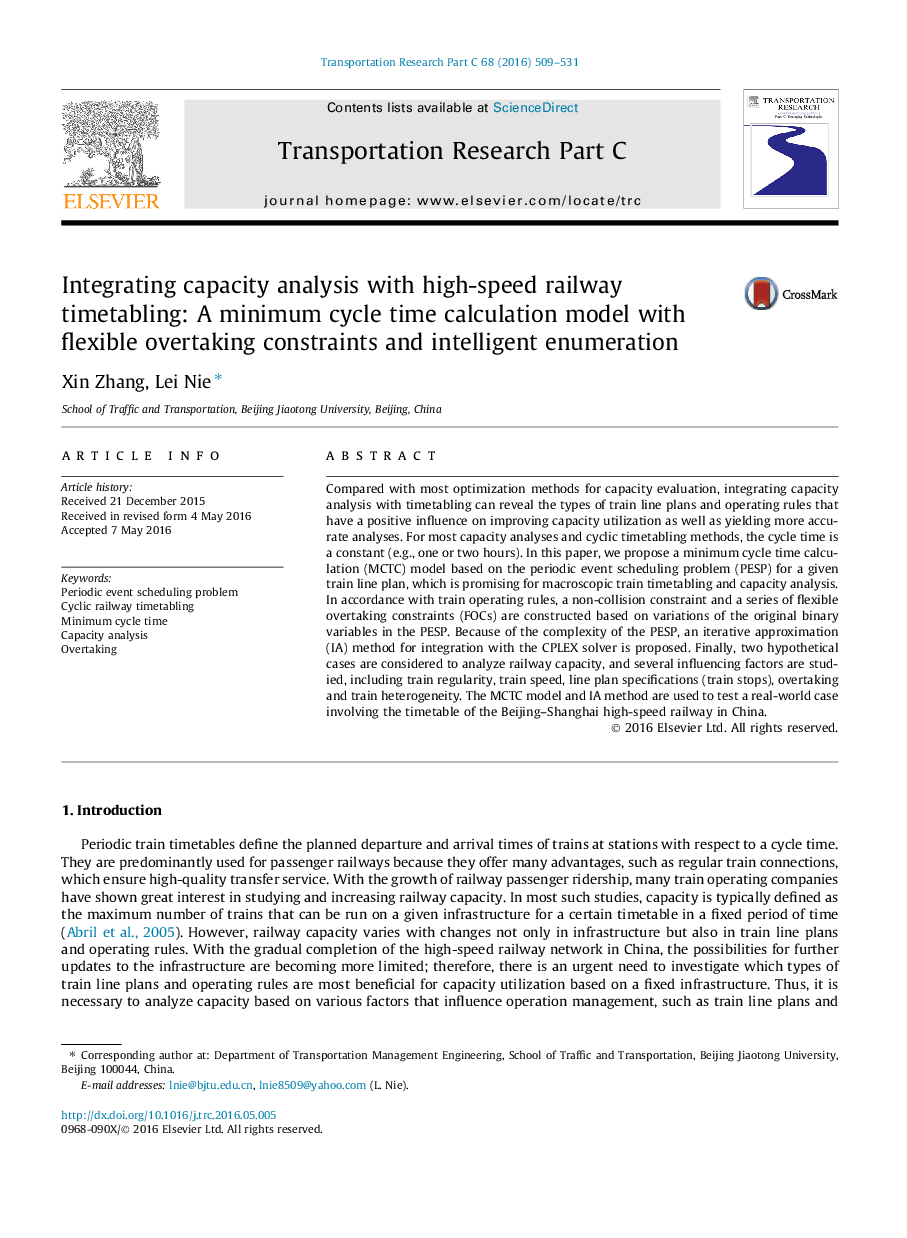| Article ID | Journal | Published Year | Pages | File Type |
|---|---|---|---|---|
| 6936449 | Transportation Research Part C: Emerging Technologies | 2016 | 23 Pages |
Abstract
Compared with most optimization methods for capacity evaluation, integrating capacity analysis with timetabling can reveal the types of train line plans and operating rules that have a positive influence on improving capacity utilization as well as yielding more accurate analyses. For most capacity analyses and cyclic timetabling methods, the cycle time is a constant (e.g., one or two hours). In this paper, we propose a minimum cycle time calculation (MCTC) model based on the periodic event scheduling problem (PESP) for a given train line plan, which is promising for macroscopic train timetabling and capacity analysis. In accordance with train operating rules, a non-collision constraint and a series of flexible overtaking constraints (FOCs) are constructed based on variations of the original binary variables in the PESP. Because of the complexity of the PESP, an iterative approximation (IA) method for integration with the CPLEX solver is proposed. Finally, two hypothetical cases are considered to analyze railway capacity, and several influencing factors are studied, including train regularity, train speed, line plan specifications (train stops), overtaking and train heterogeneity. The MCTC model and IA method are used to test a real-world case involving the timetable of the Beijing-Shanghai high-speed railway in China.
Keywords
Related Topics
Physical Sciences and Engineering
Computer Science
Computer Science Applications
Authors
Xin Zhang, Lei Nie,
